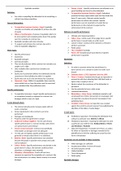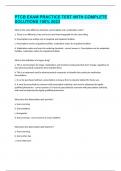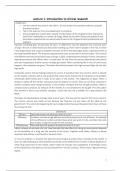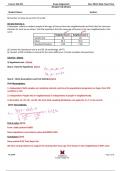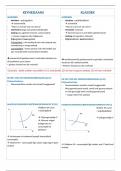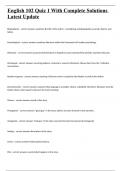Summary
Equitable remedies Summary notes- Equity and Trusts
- Module
- Law of Trusts (LX2083)
- Institution
- Brunel University (BU)
These are notes on equitable remedies created in 2019. They follow a structured format which condenses the relevant case law, statutory provisions and academic opinion that are relevant to the topic to aid with exam revision.
[Show more]
